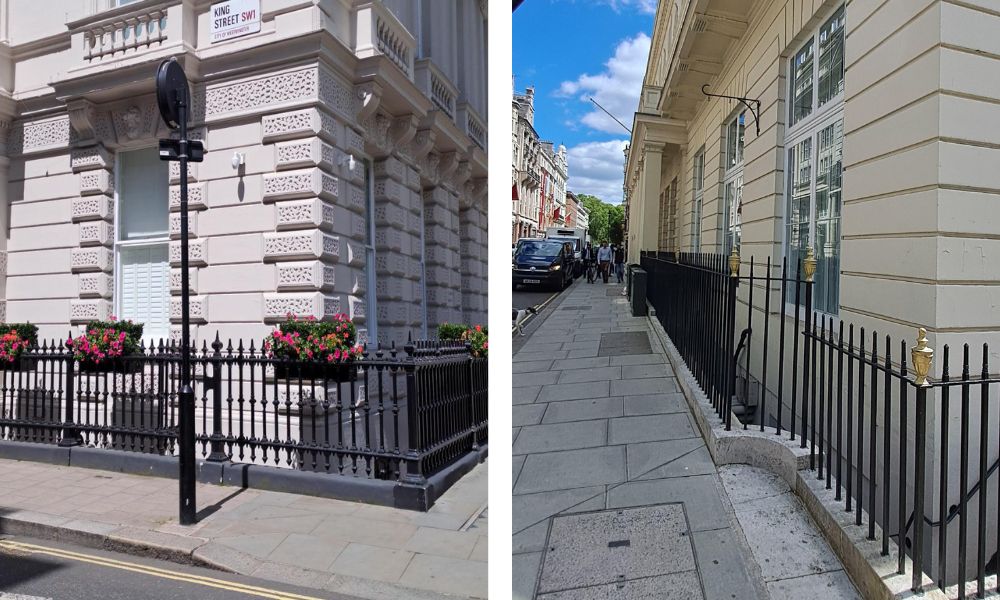Background
In response to the global growing climate challenge, Westminster City Council is examining how its public highways work could be more carbon efficient. In a first-of-its-kind trial developed jointly with FM Conway Contractors, a section of footway on King Street in Westminster was reinstated using more carbon-efficient methods than the standard practice.
The work was integrated into the Council’s planned maintenance programme to make a like-for-like comparison, with as little deviation as possible from the standard Westminster Council footway specification. To fully understand the benefits of the trial, the results were also compared with other planned maintenance work being carried out nearby.
The King Street trial was the first time carbon impact has been measured for a scheme in Westminster and sets the baseline for monitoring carbon savings in footway design and installation.
Site Operations and Delivery
Plant, equipment and on-site activity were major elements assessed by FM Conway as part of the overall aim to reduce carbon impact. Electric plant and equipment were used alongside on-site charging facilities to reduce the need for machinery to be transported off-site each evening for charging. Staff, operatives and visitors were also required to visit the site by a sustainable mode of transport, and where possible, materials were delivered by an electric vehicle or cargo bike.
Bespoke Pavement Design to Reduce Carbon
The trial also examined opportunities to reduce carbon impact through material specification. To support, Marshalls provided design and engineering expertise to Westminster Council, helping the local authority to remain close to the ‘Westminster Way’ ensuring the finished look of the street was in keeping with the rest of the area. While the final specification remained as Marshalls standard pimple paving, it was identified that the depth of the paving and how it was installed could be altered to reduce the project’s carbon impact.
Marshalls’ specialist pavement engineering team applied its expertise focusing firstly on the thickness of the paving units. The standard Westminster specification called for 63mm thick units; however, through its calculations and understanding of material performance and loading requirements, the engineering team identified the depth could be reduced to a 50mm. The result of this change was an immediate carbon reduction of 4kg for every square metre of the 248M2 project.
The Marshalls engineering team also considered the material and construction specification beneath the paving surface – typically where 80% of overall build costs can lie. By refining the mortar bedding and jointing specification to Marshalls Pavebed, Pavebond and Pavejoint it saved on the bed depth and created a further opportunity to reduce embodied carbon without any impact on longevity or performance. A further review of the road base and subbase material specifications allowed Marshalls to propose a reduced build-up specification without compromising structural performance.
Through these changes, the construction build-up was reduced by 58mm overall. This saving led to the single largest carbon saving on the project, in addition to savings on time and cost.












